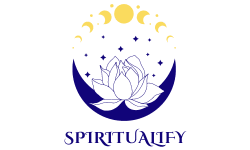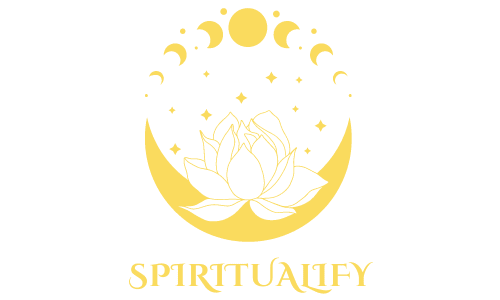We all have those moments in life where we feel lost. Maybe we've experienced a major setback or change that has left us feeling disoriented and uncertain. Or maybe we just can't seem to find our way forward and it feels like we're stuck in a rut.
If you're struggling to find yourself, know that you're not alone. In fact, many people go through periods of feeling lost at some point in their lives. But the good news is that there are steps you can take to get back on track.
The term “lost” can mean different things to different people. For some, it may simply refer to feeling directionless or unsure of what they want in life. For others, it may represent a more deep-seated sense of disconnection from their true selves – a feeling that they have lost touch with who they really are.
You may feel embarrassed to admit that you have no idea who you really are and that you have no bloody clue as to what you want out of life. You feel ashamed to admit that. In point of fact, you experience yourself as an absolute outsider to yourself.
What you are going through is the result of living in a society that is always trying to tell you who THEY think you are. This society is the one in which you currently live. (And the fact of the matter is that this can actually be quite disorienting, disheartening, and overwhelming!)
To put it another way, not having a firm grasp on who you truly are can be disorienting, perplexing, and frightening.
Life will pull you in many different directions, and you won't be able to hold on to the core of who you are.
In order to discover how to locate oneself, it is necessary to establish a connection with the essence of oneself, also known as one's soul. And in order to accomplish this, you will need to do some introspection.
It's time to find out who you are…
9 Steps to Find Yourself When You’re Lost in Life
By following these steps, you can begin to reclaim your sense of self and move forward with confidence.
Step 1: Schedule alone time.
The first step to finding yourself when you're lost in life is to schedule some time alone. Whether it's taking a walk in nature, sitting in silence, or writing in a journal, giving yourself some time and space to be with your thoughts is crucial.
One of the main reasons you need alone time is so that you can connect with your inner voice. In our busy lives, it's easy to get caught up in the noise of the world and forget what we really want and who we really are.
When you take some time for yourself, you can start to listen to that inner voice again and get back in touch with your true self.
There are a few things you can do to make the most of your alone time and truly connect with yourself. First, try to clear your mind as much as possible before you start.
This means putting away any distractions like your phone or a book, and just focusing on being present in the moment. Second, try not to force anything – just let whatever comes up come up naturally.
And third, be patient – it takes practice to learn how to truly listen to yourself, but it's worth it!
Step 2: Cleanse your inner shit mentally and emotionally.
This means letting go of all the negativity, resentment, and self-doubt that's been weighing you down. Only then will you be able to move forward on your journey to finding yourself.
Let go of all the negative emotions you've been carrying around. This includes anger, resentment, jealousy, envy, fear, and self-doubt. These emotions serve no purpose other than to keep you stuck in the past or worried about the future.
They prevent you from being present in the moment and enjoying your life. Instead of letting them control you, release them so they no longer have power over you.
A key part of cleansing your inner shit is forgiveness- both for yourself and for others. Forgiving yourself means letting go of any guilt or shame you may be feeling about your past choices or actions.
It also means accepting yourself for who you are– flaws and all. Forgiving others means releasing any anger or resentment you may be holding onto towards them. It doesn't mean condoning their actions; it just means freeing yourself from the negative emotions they've caused you.”
Step 3: Identify your top five essential needs.
In order to identify your top five essential needs, it's important to first understand what an “essential need” is. An essential need is defined as a requirement for physical or mental well-being. This can include things like air, water, food, shelter, sleep, family, and so on.
Once you understand what an essential need is, it's time to start brainstorming which ones are most important to you. To do this, ask yourself what you need in order to feel happy, healthy, and fulfilled.
For example, do you need plenty of time alone? Or do you need regular social interaction? Do you need a sense of purpose or meaning in your life? Really take the time to think about what YOU need in order to feel your best.
Once you have a good idea of what your essential needs are, it's time to narrow it down to the top five. This may seem like a daunting task, but remember – you can always change your mind later on if something doesn't end up working out. Just trust your gut and go with your initial instinct.
Some people find it helpful to make a list of their top five needs and then rank them in order of importance. Others prefer to just keep them in their head (or write them down without ranking them).
However you choose to do it, just make sure that you really take the time to consider which needs are most essential to you.
Step 4: Consider your true desires in life.
It is important to first consider what you value most in life. What are the things that bring you happiness and fulfillment? Once you have identified your values, you can begin to explore your true desires.
It is also important to consider your current circumstances when exploring your true desires. Are you in a situation that is not conducive to your happiness? If so, it may be necessary to make some changes in order to pursue your desired life path.
There are many ways to explore your true desires. Some people find it helpful to journal or meditate on this topic. Others find it helpful to speak with a counselor or therapist. Ultimately, the best way to explore your true desires is whatever method works best for you.
Step 5: Accept your right to self-sovereignty.
In order to move forward on your journey of finding yourself, it is essential that you accept your right to self-sovereignty. This means recognizing that you are the only one who can define yourself and your experiences—no one else has the authority to do so.
It also means acknowledging that you have the power to create your own life, regardless of what anyone else may think or say. This can be a difficult step for many people, as it requires letting go of the need for approval from others. But it is a necessary step if you want to reclaim your true identity.
Step 6: Investigate, travel, and reflect (and find your passion).
Your passion is what gets you excited about life. It's that thing that makes you want to jump out of bed in the morning and start your day. It's what drives you to do great things. Passion is the fuel that ignites your fire and keeps you going when things get tough.
So how do you find your passion? The first step is to investigate, travel, and reflect. This means taking some time for yourself to explore different interests and hobbies.
Try new things and see what sparks your interest. Take a trip somewhere new and explore different cultures. And spend some time alone reflecting on what you want out of life.
Traveling can help you find your passion in several ways. First, it can help you learn more about yourself. When you're in a new place, surrounded by new people and experiences, you have the opportunity to really think about who you are and what you want in life.
This can be a helpful exercise if you feel like you're lost or don't know where to start when it comes to finding your passion.
Second, traveling can also expose you to new cultures and ways of life that can be inspiring or eye-opening. Seeing how other people live their lives can give you a fresh perspective on your own life and what's important to you. You may even discover a new interest or hobby while traveling that becomes your passion!
Finally, spending time alone while traveling can provide the perfect opportunity for reflection. With no distractions from work or everyday life, you can really focus on thinking about what matters most to you and what kind of life YOU want to live.
This introspection can be key in helping you figure out what your passions are.
Step 7: Terminate relationships and obligations that promote falsehood.
It's time to let go of the things that are holding you back from being your true self. This may mean terminating relationships or obligations that promote falsehood.
If someone in your life is not supportive of your journey to find yourself, it may be time to let them go. The same goes for any obligations or commitments that are no longer serving you. Letting go can be difficult, but it is often necessary in order to move forward.
Step 8: Establish a spiritual connection.
In order to connect with your higher self and the universe, it is essential to establish a spiritual practice. This can be done through yoga, meditation, prayer, or any other activity that allows you to quiet your mind and connect with your innermost thoughts and feelings.
When you find stillness within yourself, it becomes easier to connect with the infinite intelligence of the universe. This connection is what will allow you to receive guidance and clarity on your life path.
There are many ways to establish a spiritual practice, so find one that resonates with you and stick with it. The most important thing is that you make time for it every day. Even just 10-15 minutes of stillness can make a world of difference in how clear and connected you feel.
Step 9: Regain a sense of your wildness.
In order to find yourself, you need to reconnect with your wild side. This means getting in touch with the part of you that is untamed and free. It may be helpful to spend time in nature, dance, or do anything that makes you feel alive and free.
The key is to let go of your inhibitions and allow yourself to be present in the moment. When you do this, you will start to feel more connected to your true self.
Last Words
If you're lost in life, it can be difficult to find yourself again. But with these 9 steps, you can begin the journey to discovering your true self. From scheduling alone time to identifying your essential needs, these steps will help you connect with your authentic self and start living a more fulfilling life.
So don't give up – keep searching for your true north, and you'll eventually find your way back home.
Tags: PurposeSpiritual Growth
Helen is the founder of Spiritualify.org where she covers all things astrology — from horoscopes and zodiac guides to retrograde alerts and moon updates. She also writes about other mystical lifestyle topics, such as numerology, crystal healing, tarot, dream interpretation, and more.
















